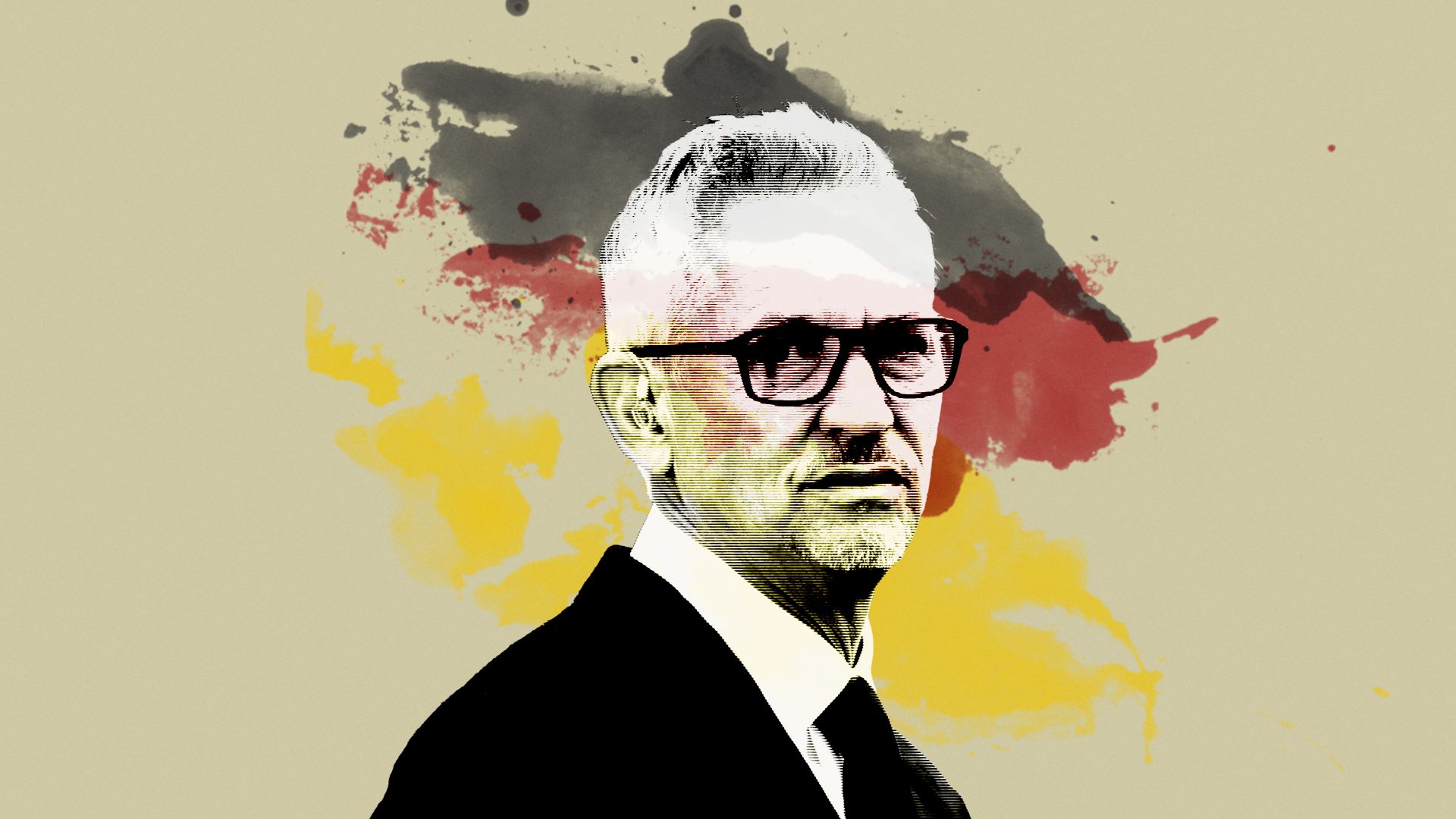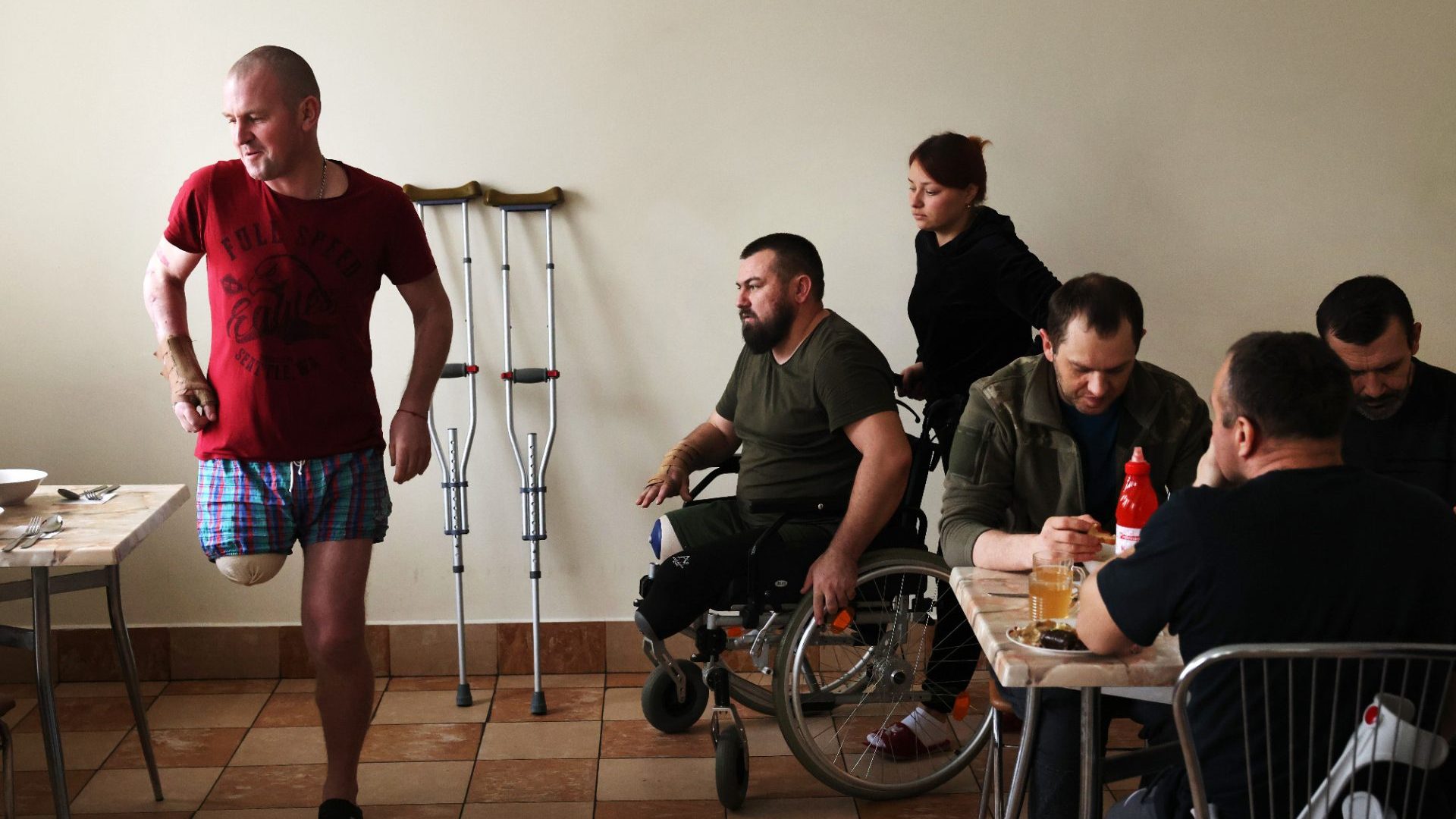What if… Gary Lineker was German? I know, nothing suggests he is – too much of a sense of humour and no World Cup winner’s medal. But allow me the Gedankenspiel (mind game).
It’s safe to assume that if Gary was a Gerhard, his salary for presenting Sportschau (ARD) or Das Aktuelle Sportstudio (ZDF) would be significantly below what he earns at Match of the Day. No one would know for sure though, because German public broadcasters don’t do BBC-like top salary lists.
Also, Gerhard wouldn’t be as witty as Gary, at least not in public. No German footballer of his rank is; former midfielder Günter Netzer being the elderly exception.
He could be outspoken, though. But would a tweet about the government’s migration policy have dominated our news the same way it dominated yours? Jein (Ja und Nein). Here’s why.
Our public broadcasters do not have strict impartiality rules. ARD and ZDF, although created in the BBC’s image, strive for Ausgewogenheit (balance) instead. Our Constitutional Court stresses they should represent the “diversity of existing opinions as broadly and completely as possible”. If all (relevant) sides get airtime, you cannot be one-sided…
Needless to say, this principle constantly clashes with reality.
There are excellent journalists at ARD and ZDF. And there are others who openly pride themselves on their stance promoting a value-driven journalism over the “delusion of neutrality”. Unlike their BBC colleagues, our public-service political correspondents joyfully engage in Twitter debates, often relying on a profile bio that says “Ich bin hier privat”.
The top level doesn’t enforce restraint, and it would be difficult to do so: political commentary by ARD/ZDF employees is officially a part of the news programme. Plus: the management isn’t a shining example of impartiality either. In 2019, for instance, then ARD editor Rainald Becker called Israel a “lackey of the US” on Twitter. And kept his job.
A few years ago, ARD conducted a small survey among its trainees and found that 57% would vote Green and 23% were in favour of the far left. Less than 4% supported the free-market liberals and the Christian Democrats. Today, there’s still a shortage of centre-conservative staff, and polls show that a majority of Germans believe ARD/ZDF have a left-green bias.
And yet, a sports presenter lashing out against a legislative proposal by the conservatives off air wouldn’t be in any trouble. Linking this policy to 1930s Germany, however, would inevitably create a scandal – which is why I think a German Lineker would have phrased his criticism differently. It’s a cultural thing. If Deutsch and in the public eye, you better refrain from Nazi comparisons.
We have them, for sure. The 1968 movement used to chant “U-S-A-SA-SS” at rallies. In 1982, Oskar Lafontaine, the then-SPD mayor of Saarbrücken, vilified SPD chancellor Helmut Schmidt by saying: “Schmidt talks of a sense of duty, reliability, feasibility, steadfastness. These are secondary virtues. To be precise: one can run a concentration camp based on them.” And in 1986, the chancellor, Helmut Kohl, called Mikhail Gorbachev a “modern communist leader well-versed in PR. As was Goebbels.”
Playing the Nazi card is often a means to an end though – the end of your career. A justice minister who compared George W Bush to Adolf Hitler suffered that fate. And in 2021, the head of the German Football Association who called a fellow member of the steering committee a modern-day Freisler (the Nazi judge) had to step down.
Here, reductio ad Hitlerum is seen as intellectually lazy, but more importantly as trivialising the horrendous singularity of the Nazi era with its industrialised genocide. So the Central Council of Jews in Germany heavily criticised Stern magazine for its 2017 cover illustration of Donald Trump wrapped in a US flag doing the Hitler salute.
Usage of Nazi terms is disapproved of, too – gleichgeschaltet (forced into line) for instance, with which far-right fans try to discredit today’s journalists.
Anti-vaxxers who wear a yellow star at protests equally provoke outrage. As did the Palestinian leader Mahmoud Abbas at a 2022 press conference in the chancellery when he talked of the “50 Holocausts” his people had suffered at the hands of Israel. Olaf Scholz stood sheepishly at his side and later received nearly as much censure as Abbas for not having found the right reply in time.
I know there’s an argument abroad that a thoughtful, historically aware reference to the Nazi era can help start a debate to illuminate present threats to society. You may well make that case for Gary Lineker. In Germany, however, a Nazi comparison will only start a debate… about the Nazi comparison.




